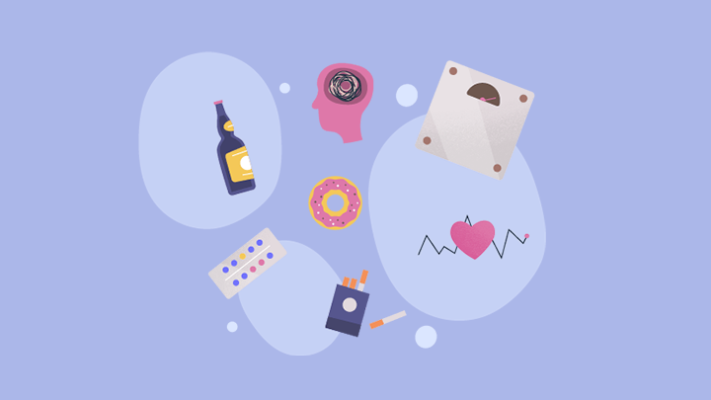
The Symptoms and The Causes of Erectile Dysfunction
Last updated on June 23rd, 2022 at 04:26 am
What is Erectile Dysfunction?
Erectile Dysfunction (ED) is classified as a failure to achieve or sustain an erection strong enough for sexual intercourse.
ED is definitely not uncommon. It is one of the most common sexual disorders in men. There are a variety of reasons that can contribute to ED and several methods of tackling ED to improve your sexual experience.
In this article, we will discuss the most common factors that are associated with ED, as well as suggest ways in which you can get back on track.
Why Does Erectile Dysfunction Occur?
For some people, becoming sexually aroused has its challenges. It can be quite difficult to engage in sexual intercourse for sustained periods of time.
This can be very frustrating for people who suffer from erectile dysfunction, who tend to steer towards believing that it is their mindset that is the reason for them to be unable to maintain an erection.
A number of psychological factors can be the cause of limitations to the strength of your erection. For example, if you suffer from depression and anxiety or even have previously experienced some form of abuse.
Furthermore, it is important to note that several prescription medications like antidepressants tend to increase erectile dysfunction.
Most Common Causes of Erectile Dysfunction:
We will now look to explore a number of factors that can increase the chances of erectile dysfunction:
Medication:
If you are experiencing troubles with sustaining an erection, it may be worth taking an in-depth look, as to what medications you are using. There are a number of medications that could increase the cause of erectile dysfunction. DHT blockers and antidepressants are known to have erectile dysfunction as a regular side effect.
Existing Diseases and Conditions:
Heart disease has been shown to have a link with people who suffer from erectile dysfunction.
Also, other conditions such as obesity and diabetes could increase your chances of having erectile dysfunction.
Moreover, erectile dysfunction is likely to be more common in men who have high levels of blood pressure or even high cholesterol.
Psychological Factors
If you suffer from anxiety, depression, other mental conditions or even stress, it could disrupt the flow of getting excited before sex. Psychological factors account for around 20% of all erectile dysfunction challenges.
Preventions and Treatments
There are several ways in which you can reduce the effects of erectile dysfunction. As previously mentioned, lifestyle changes can be made but there are also other ways to treat it, which we will explore below:
Medications
Several medications are available to treat erectile dysfunction:
– Cialis
– Sildenafil
It may be the case that you need to try a few medications to get the right one that works for you.
The medications listed above, increase the circulation of blood in the penis, resulting in getting an erection.
Pharmica – an online pharmacy, is a great place to get hold of the treatments listed above at very affordable prices.
Counseling
Your doctor may suggest that you get some support from specialists if you are experiencing stress, depression, emotional or behavioral issues concerning your erectile dysfunction.
Psychologists will teach you how to reduce the challenges you are facing.
Final Thoughts
Throughout this article, it is clear that erectile dysfunction could be as a result of an array of factors.
It could simply be your use of a specific medication!
Having a healthy lifestyle will most certainly be effective in combating erectile dysfunction. However, it is known that medication can be a quick and hassle-free method to increase the likelihood of a lasting erection when required.
Finally, keep in mind that you are not at all alone!
There are many methods of prevention and treatment to try.
Read Dive is a leading technology blog focusing on different domains like Blockchain, AI, Chatbot, Fintech, Health Tech, Software Development and Testing. For guest blogging, please feel free to contact at readdive@gmail.com.
